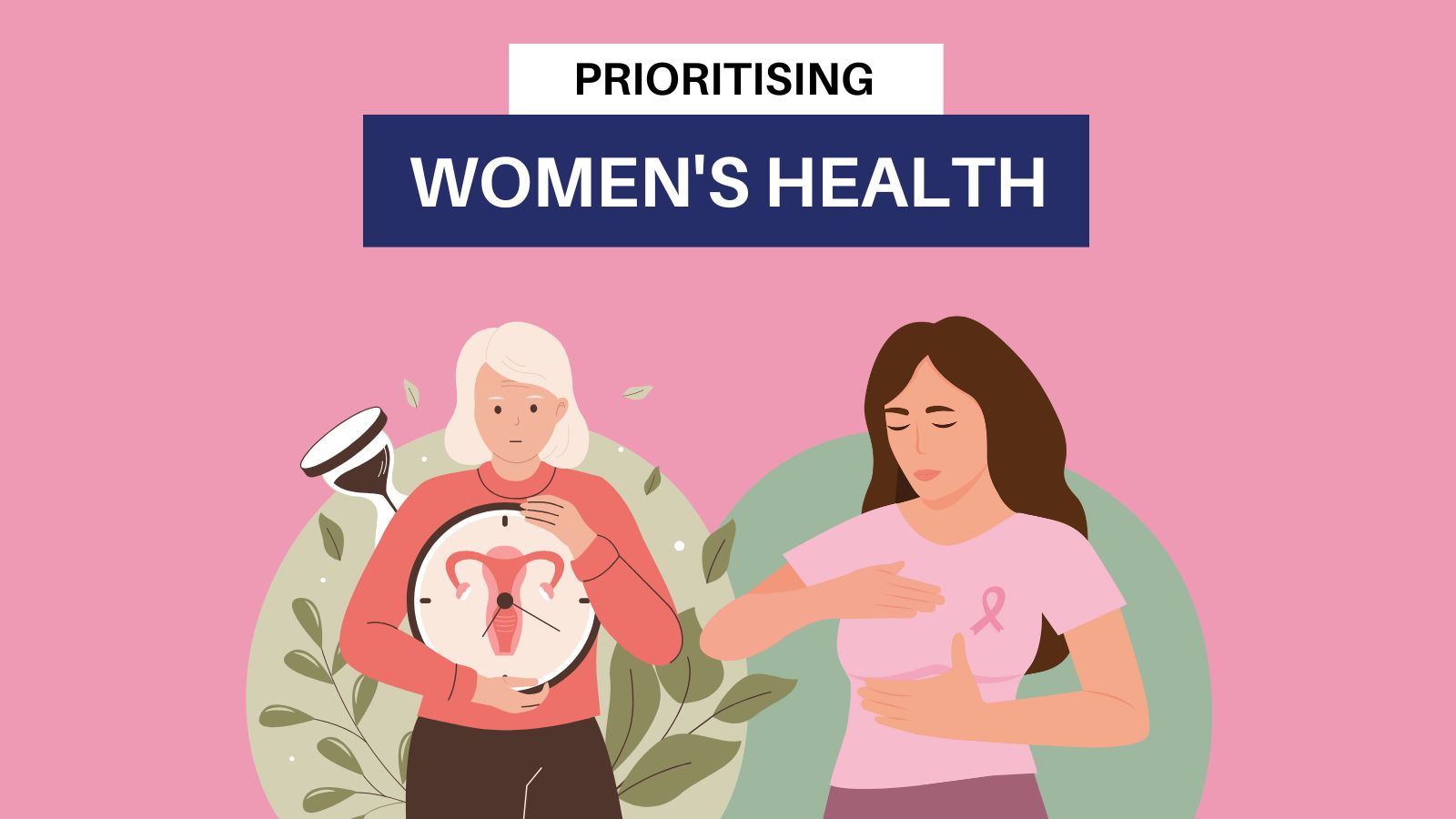October is a month dedicated to raising awareness of two important aspects of women’s health: Breast Cancer Awareness Month and Menopause Awareness Month. Both campaigns are vital in encouraging open conversations, reducing stigma, and ensuring women have access to the support they need, not only in their personal lives but also in the workplace.
Breast Cancer Awareness Month
Breast Cancer Awareness Month shines a spotlight on the most common cancer in women worldwide. In the UK alone, around 55,000 women are diagnosed each year. While it predominantly affects women, it’s important to remember that men can also develop breast cancer, though at much lower rates.
Early detection and screening
- Self-checks: Regularly checking your breasts and being aware of changes such as lumps, changes in shape, skin texture, or nipple discharge is key.
- Screening programmes: In the UK, women aged 50–71 are invited for free mammograms every three years, but awareness is crucial at all ages. Detecting cancer early often means treatment is more effective, with a much higher survival rate.
Treatment and impact
Treatment can include surgery, radiotherapy, chemotherapy or hormone therapy. While medical advances continue to improve survival rates, the side effects of treatment and the emotional toll can be significant. Fatigue, pain, and reduced mobility may impact day-to-day activities, including work.
Supporting employees with breast cancer
Workplaces play an important role in supporting employees through diagnosis, treatment, and recovery. Compassionate communication, flexible working arrangements, and reasonable adjustments can make a huge difference. Managers who understand the challenges employees face are better placed to provide effective and meaningful support.
Menopause Awareness Month
Menopause Awareness Month is about breaking the silence around a natural life stage that affects half the population. In the UK, an estimated 13 million women are currently peri- or post-menopausal. Despite this, many still feel unable to talk about the impact it has on their health, relationships and working lives.
What is menopause?
Menopause marks the end of a woman’s menstrual cycles, officially diagnosed after 12 consecutive months without a period. The transition usually occurs between the ages of 45 and 55, though it can happen earlier due to surgery, medical treatment, or natural variation.
Common symptoms
The effects of menopause vary widely between individuals. Some women may experience mild symptoms, while others find their daily lives significantly affected. Symptoms can include:
- Hot flushes and night sweats
- Brain fog, difficulty concentrating, and memory issues
- Sleep disturbances and fatigue
- Anxiety, low mood, and mood swings
- Joint pain and reduced bone density
- Changes in weight or metabolism
Impact in the workplace
Research shows that 1 in 10 women leave their jobs due to menopause symptoms. Many more reduce their hours or avoid promotion opportunities because they feel unsupported. This not only affects employees’ health and wellbeing but also results in a significant loss of skills and experience for employers.
Why awareness matters
By improving awareness, employers can reduce stigma and open the door to supportive conversations. Reasonable adjustments, such as flexible working hours, better ventilation, access to rest areas, or providing uniforms made from breathable fabrics, can have a big impact. Training managers to have sensitive, informed discussions is also essential.
How Acorn Can Help
At Acorn Occupational Health, we provide specialist advice and practical solutions to support employees and employers navigating health challenges such as breast cancer and menopause.
Through our management referral services, we:
- Offer independent, evidence-based medical advice tailored to the individual’s health condition.
- Advise on suitable adjustments to help employees continue working while managing symptoms or treatment side effects.
- Provide guidance to managers on balancing employee needs with business objectives.
- Support long-term planning for return-to-work processes following illness or treatment.
- Ensure employees feel listened to and supported in a confidential and professional way.
Breast cancer and menopause are two areas of women’s health that can have a profound impact both personally and professionally. By raising awareness and encouraging workplaces to take proactive steps, we can reduce stigma, improve wellbeing, and create healthier, more inclusive environments for all.
At Acorn, we’re committed to supporting employers in achieving this. If you’d like to find out more about how our management referral services can help, please get in touch.
📞 01260 277797

